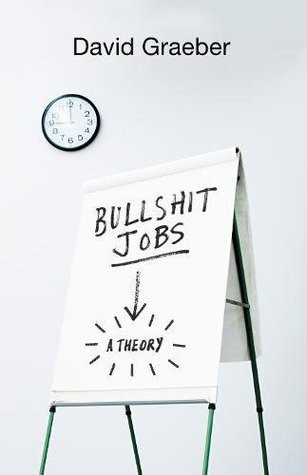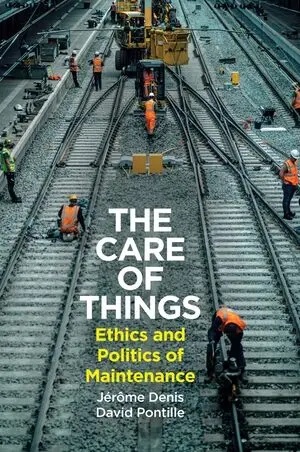@pelagikat @futzle They certainly did! It's decidedly odd, but likeable in a Canadian way www.imdb.com/title/tt1024701/?ref_=ext_shr_lnk
User Profile
Researcher and educator from Sydney, Australia. You’ll usually find me on the forgotten parts of the web.
My ratings ★ Not recommended ★★ Not for me, but may be okay for you? ★★★ Good ★★★★ Very good, recommended ★★★★★ Exceptional, couldn't put it down
This link opens in a pop-up window
Ben Harris-Roxas's books
2025 Reading Goal
Success! Ben Harris-Roxas has read 15 of 12 books.
User Activity
RSS feed Back
Ben Harris-Roxas finished reading Children of Dune (Dune Chronicles, #3) by Frank Herbert

Children of Dune (Dune Chronicles, #3) by Frank Herbert
The science fiction masterpiece continues in the "major event,"( Los Angeles Times) Children of Dune. With millions of copies sold …
Ben Harris-Roxas replied to Dr Ms Kat's status
@pelagikat @futzle They certainly did! It's decidedly odd, but likeable in a Canadian way www.imdb.com/title/tt1024701/?ref_=ext_shr_lnk
Ben Harris-Roxas wants to read The Lantern and the Night Moths by Yilin Wang

The Lantern and the Night Moths by Yilin Wang, Qiu Jin, Fei Ming
The lantern light seems to have written a poem; they feel lonesome since i won’t read them. —“lantern” by Fei …
Ben Harris-Roxas started reading Children of Dune (Dune Chronicles, #3) by Frank Herbert
Book 3, here we go. I remember some of this from reading it 30 years ago, let's see if it's as weird as I recall.
Book 3, here we go. I remember some of this from reading it 30 years ago, let's see if it's as weird as I recall.
Ben Harris-Roxas replied to Deborah Pickett's status
@futzle This is definitely an odd one. Odder still, but possibly in a compelling way, is the TV series they made of this. It used to be on Prime Video but it's off now. Worth chasing up if you're an Alan Thicke fan.
@futzle This is definitely an odd one. Odder still, but possibly in a compelling way, is the TV series they made of this. It used to be on Prime Video but it's off now. Worth chasing up if you're an Alan Thicke fan.
Ben Harris-Roxas replied to Dr Ms Kat's status
@pelagikat That's exactly how I felt. It's a rather terrifying and plausible vision of the near-future but damn it's a slog. Some of the narrative perspectives don't seem to add much value other than fulfilling the author's Tolstoy-esque ambitions.
That said, almost a year later I can still vividly recall sections of the book and its imagery. That's certainly not the case with most books I read.
Overall I'm glad I read it, but I will absolutely never read it again. Solidarity with you in your task ✊🏼
@pelagikat That's exactly how I felt. It's a rather terrifying and plausible vision of the near-future but damn it's a slog. Some of the narrative perspectives don't seem to add much value other than fulfilling the author's Tolstoy-esque ambitions.
That said, almost a year later I can still vividly recall sections of the book and its imagery. That's certainly not the case with most books I read.
Overall I'm glad I read it, but I will absolutely never read it again. Solidarity with you in your task ✊🏼
Ben Harris-Roxas replied to Barbarius's status
@Barbarius great suggestions! I read them many years ago as a teenager and I may run out of puff after three. Dune Messiah reads differently now, with some more adult appreciation but also in the post-9/11 era as well.
Ben Harris-Roxas started reading The Imposition of Unnecessary Obstacles by Malka Older (Mossa and Pleiti, #2)

The Imposition of Unnecessary Obstacles by Malka Older (Mossa and Pleiti, #2)
Investigator Mossa and Scholar Pleiti reunite to solve a brand-new mystery in the follow-up to the fan-favorite cozy space opera …
Ben Harris-Roxas started reading Dune Messiah (Dune Chronicles, Book 2) by Frank Herbert (Dune (2))

Dune Messiah (Dune Chronicles, Book 2) by Frank Herbert (Dune (2))
Ben Harris-Roxas finished reading Master and Commander by Patrick O'brian
Ben Harris-Roxas started reading Master and Commander by Patrick O'brian
Ben Harris-Roxas replied to Dr Ms Kat's status
@pelagikat There are many, many characters with a narrative perspective. Most of them are quite alienating though - and it's a loooong book! To be honest I'm not sure if I'm glad I finished it.
@pelagikat There are many, many characters with a narrative perspective. Most of them are quite alienating though - and it's a loooong book! To be honest I'm not sure if I'm glad I finished it.
Ben Harris-Roxas reviewed Inhibitor Phase by Alastair Reynolds (The Inhibitor Sequence, #4)
Probably didn't need to exist
3 stars
I was quite intrigued to revisit the Revelation Space universe. This rambling, largely pointless story felt tired. The characterisation was thin throughout. The ending was disappointing for its lack of resolution. A real shame.
I was quite intrigued to revisit the Revelation Space universe. This rambling, largely pointless story felt tired. The characterisation was thin throughout. The ending was disappointing for its lack of resolution. A real shame.












